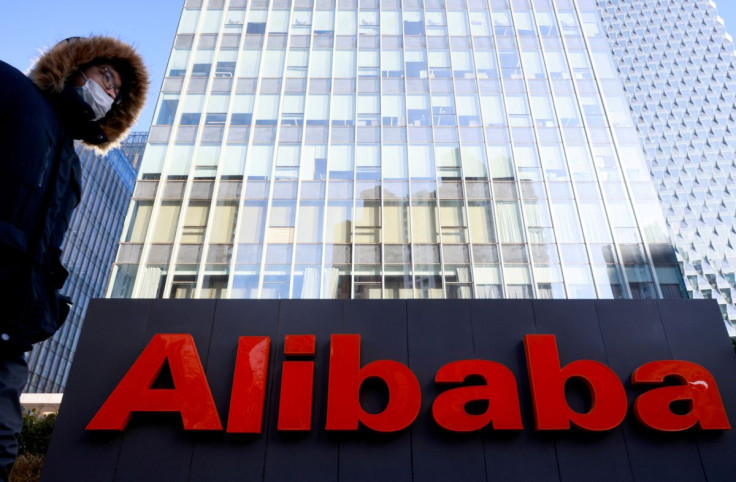Alibaba Shelves Guidance Due To COVID Risks; Resilient Q4 Lifts Stock

Alibaba Group on Thursday said it would not provide a forecast for the current fiscal year because COVID-19 risks clouded its outlook, after reporting its slowest quarterly revenue growth since going public in 2014.
The markets, however, focused on Alibaba's quarterly revenue and earnings beat in a sharply weakening economy and sent its shares surging 15%. Analysts said the results were more resilient than expected.
"As Alibaba's large scale reflects the overall macro economy, we believe it is the key beneficiary of a potential favourable policy rollout in terms of lockdown measures and consumption stimulus," Daiwa Capital analysts said in a note.
After two months of stringent COVID lockdowns put a squeeze on consumer spending, Beijing this week announced measures to shore up the economy.
Alibaba said on Thursday the restrictions weighed on its business by hindering merchants from shipping goods and making consumers focus on buying necessities. Online physical goods gross merchandise value of its China retail marketplaces - a key metric - fell by a low-teens percentage in April from a year earlier.
"To give you a sense of the scope of impact - based on consumer address, cities with new COVID cases in April represented more than half of our China Retail Marketplaces GMV," CEO Daniel Zhang told a post-earnings call.
While delivery services resumed in May, they were taking time to fully recover due to factors such as parcel backlogs, the company said.
The firm's stock had lost a third of its value this year before Thursday's gains.
Adding to the lockdown impact, investors also remain jittery over the long-term outlook for Alibaba and its peers because of a regulatory crackdown on the tech industry. They have been looking for signs that the worst might be over.
Earlier this month China soothed the tech industry, saying the government supported the development of the sector and public listings for technology companies.
Company executives said on Thursday they believed that authorities had delivered a "clear" message that they recognised the economic importance of platform companies like Alibaba.
SLOWING ECONOMY
China's giant cities have been forced into lockdowns for the past two months, bringing million of lives to a standstill and prompting global businesses to warn that consumers have slammed the brakes on spending.
In a sign of China's growing concern about the fallout on growth, Premier Li Keqiang promised to bring the world's second-biggest economy back on track.
Alibaba's Zhang said the government had sent "important policy signals" on its commitment to stabilize the economy.
For the January-March quarter, Alibaba reported a 9% rise in revenue to 204.05 billion yuan ($30.35 billion) - the slowest pace of growth since its listing, but ahead of an average analyst estimate of 199.25 billion yuan, according to Refinitiv.
Alibaba said growing demand at Chinese commerce units including Tmall Supermarket and Freshippo as well as niche shopping platforms such as Taobao Deals and Taocaicai helped sales.
Revenue in Alibaba's cloud computing division rose 12%, and sales in the core commerce unit, the company's largest, rose 8% to 140.33 billion yuan.
Annual active consumers on its platforms reached about 1.31 billion for the fiscal year, including over 1 billion consumers in China for the first time.
Ant Group, Alibaba's fintech affiliate, reported a profit of about 22 billion yuan for the quarter ended December, compared with 21.76 billion yuan a year ago. Alibaba said it received a 3.9 billion yuan dividend from Ant, the first time the fintech conglomerate has paid one.
($1 = 6.7240 Chinese yuan)
© Copyright Thomson Reuters 2024. All rights reserved.







